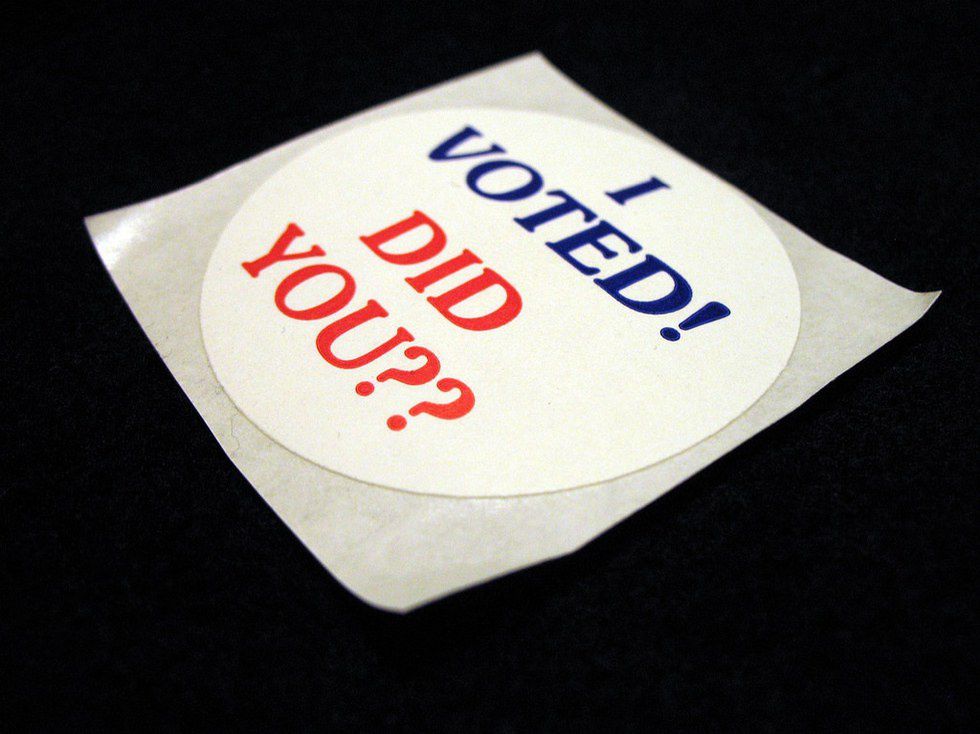There’s more on the ballot this Tuesday than the presidential candidates.
In Louisiana, voters will decide whether or not they approve of six proposed amendments to the state constitution. Among these proposed amendments are changes to corporate tax laws, the state budget, and control of setting college tuition.
(To see what exactly is on your ballot, click here.)
All of the proposed amendments will have significant effects on the state of Louisiana, so it’s important to be informed in making these decisions; however, that’s hard to do when not many people have hours to spend reading up on government policy.
So, I’ve tried to make it easier for you.
The Public Affairs Research Council of Louisiana (PAR Louisiana)—an independent, non-partisan, and non-profit organization—put together a detailed, objective review of all of the proposed amendments, which you can find here. Though this is a great resource, its descriptions are lengthy, so I’ve put together a shorter review of the amendments using the information found there, plus a few other sources (linked throughout), so you get a quicker, well-rounded review in time to really make your vote count.
#1: Creates requirements for local registrars
The first amendment proposes that in order for a state registrar of voters to be hired, he/she must meet one of several new requirements, all including years of professional work experience and/or some degree of higher education. The aim is to hire individuals with the “set basic qualifications” necessary in our technologically advancing world. Currently, there are no requirements for registrars, and they are appointed by local officials. A “yes” vote would be for establishing these requirements and making the process more open and public by no longer relying on local official’s judgment alone, and advertising vacancies to the public. A “no” vote would be for leaving these decisions to local officials and avoiding “setting the bar too high” by the new requirements.
(Note: this legislation was unopposed in the House of Representatives and the Senate.)
#2: Gives college boards the power to set their own tuition
One of the biggest issues on the ballot, this amendment proposes that autonomy over tuition and fees be given to public college boards. Currently, changes in tuition must pass through a two-thirds vote of approval from state legislature. Louisiana is the only state to require this; however, there is “little evidence” state legislature did not approve tuition changes when needed. A “yes” vote would support colleges’ ability to set their own tuition, making it easier to raise tuition, which would allow colleges the funds needed to provide more opportunities for students. However, TOPS would not increase with it, likely causing students and parents to pay more out of pocket. A “no” vote would leave changes in tuition to the approval of state legislature, who often “feel more pressure” to not raise tuition more than colleges do. However, it could result in colleges facing shortages of funds.
#3: Gets rid of federal income tax deduction & creates a flat tax for corporations
Also a rather large issue, this amendment proposes a flat tax of 6.5% and doing away with the federal income tax deduction, both for corporations only. Right now, tax rates range from 4-8%, depending on the amount of income, and corporations are able to deduct the total amount of their federal income taxes from their state taxes (Louisiana is one of only three states that allows this). With this amendment, corporations would have fewer tax deductions, which would allow for more state income, large corporations might pay lower rates, and smaller corporations might pay greater rates (LLCs will not be affected). A “yes” vote would support these changes and a wider corporate tax base. A “no” vote would keep the deduction and the varying rates proportional to income.
#4: Creates a property tax exemption for widows/widowers of people killed in the line of duty
The fourth amendment proposes spouses of deceased military and law enforcement will receive full tax exemptions for the full value of their house, as long as that was the house their spouse claimed as their residency, and they don’t remarry. Right now, everyone receives an exemption up to $75,000 for the house they live in, and spouses of disabled veterans receive double that. This amendment would be a way to honor those who have made sacrifices for our country, though some people worry this exemption will hurt the tax base. Others think the number of people it affects is too small to hurt state tax income. A “yes” vote would allow for a 100% property exemption for these individuals; a “no” vote would keep the $150,000 cap on the exemption.
#5: Creates the “Revenue Stabilization Trust Fund”
This amendment proposes a new plan for mineral revenue and corporate taxes. Right now, funds in these categories go into the general state budget, but their amounts differ greatly from year to year. Since these two sources of funds are often unpredictable in amount, the creation of this "Revenue Stabilization Trust Fund" would serve as an attempt to smooth out this unpredictability by reserving a portion of these revenues for this fund, creating limits for what can be done with them, yet still allowing access to them. Should the trust fund reach $5 billion, a portion of the fund can be used on things like infrastructure. A "yes" vote would support the creation of a trust fund for and placing limits on the state's most unpredictable income. A "no" vote keeps all of these revenues in the general budget.
#6: Allows government more access to protected funds, if needed
Finally, the sixth amendment proposes easier access to protected funds. It would lower the requirements for allowing the state to tap protected funds, but it would add more funds to the list of protected ones that are untouchable, including the "Coastal Protection and Restoration Fund," the "Oilfield Site Restoration Fund," and others. This amendment would allow tapping into protected funds more often than is allowed currently, which could help with budget problems; however, it could possibly create a dependency on these funds rather than creating a long-term stable budget. A "yes" vote would support lighter requirements for using protected funds and allow the use of them more often; a "no" vote would be for leaving the requirements as they are and only allow the use of them in emergencies.
I hope now you feel a little more prepared to vote in the Louisiana election this Tuesday. Comprised in these amendments are important issues that will significantly affect our state, so it's important to remember to use your voice and vote!




















